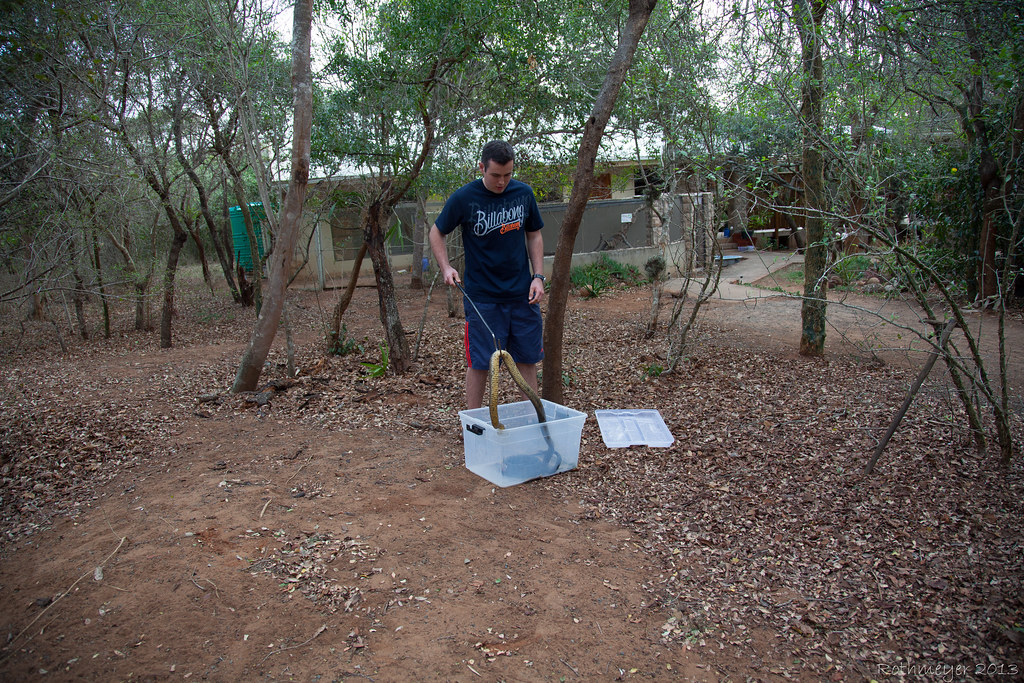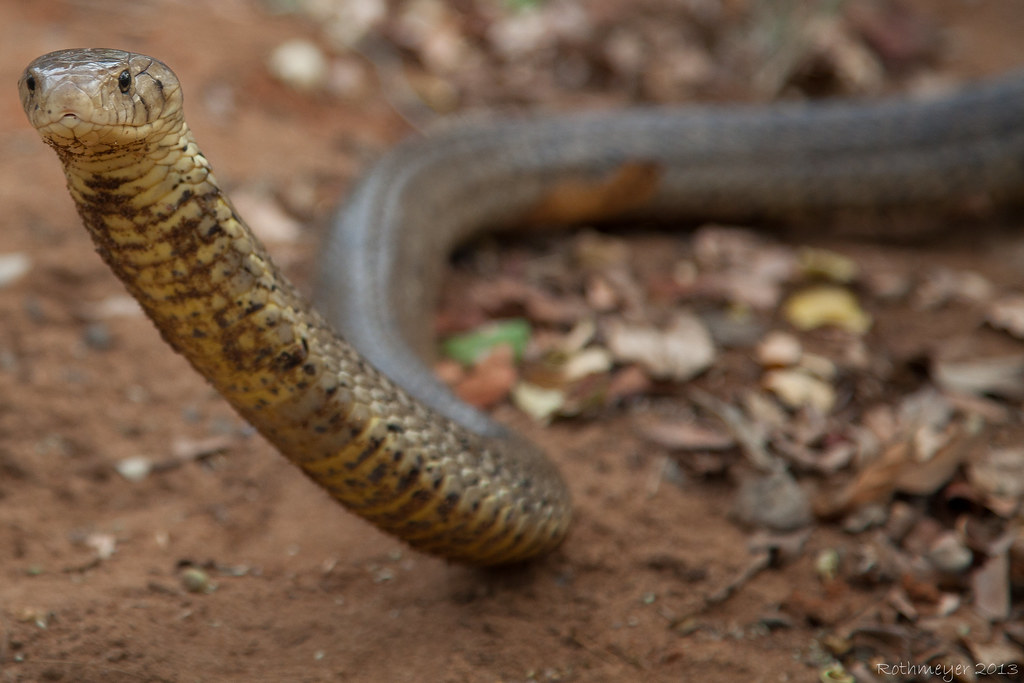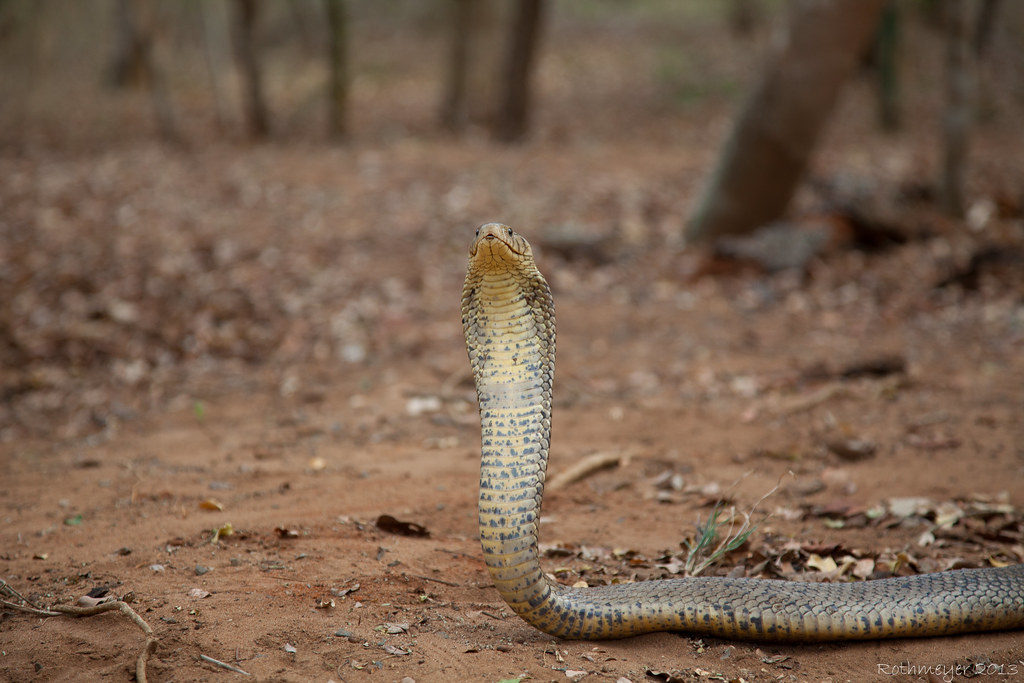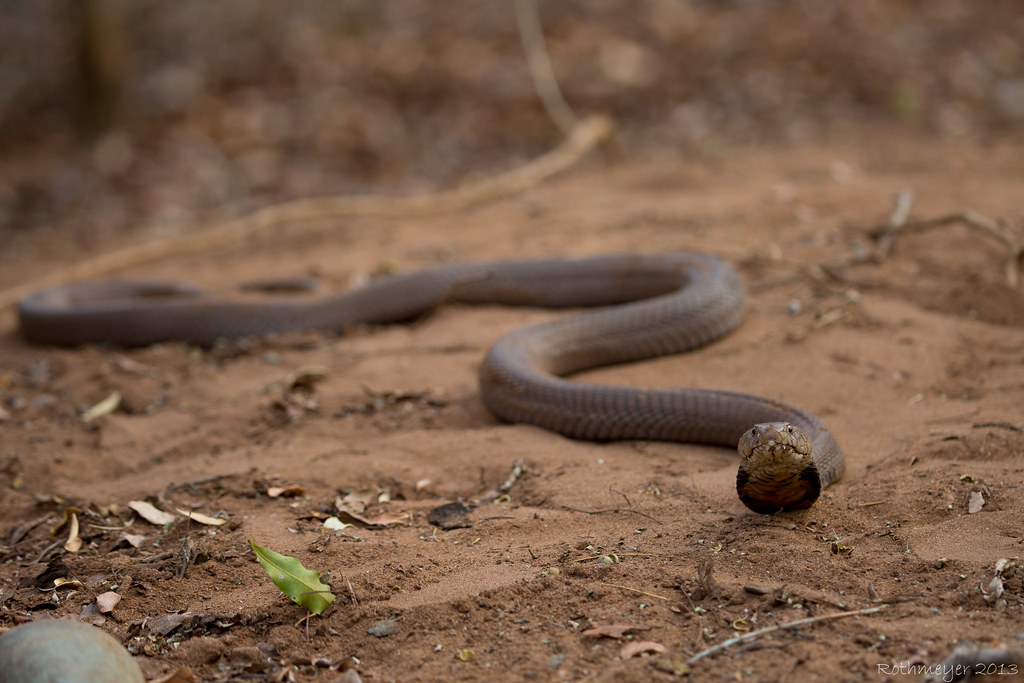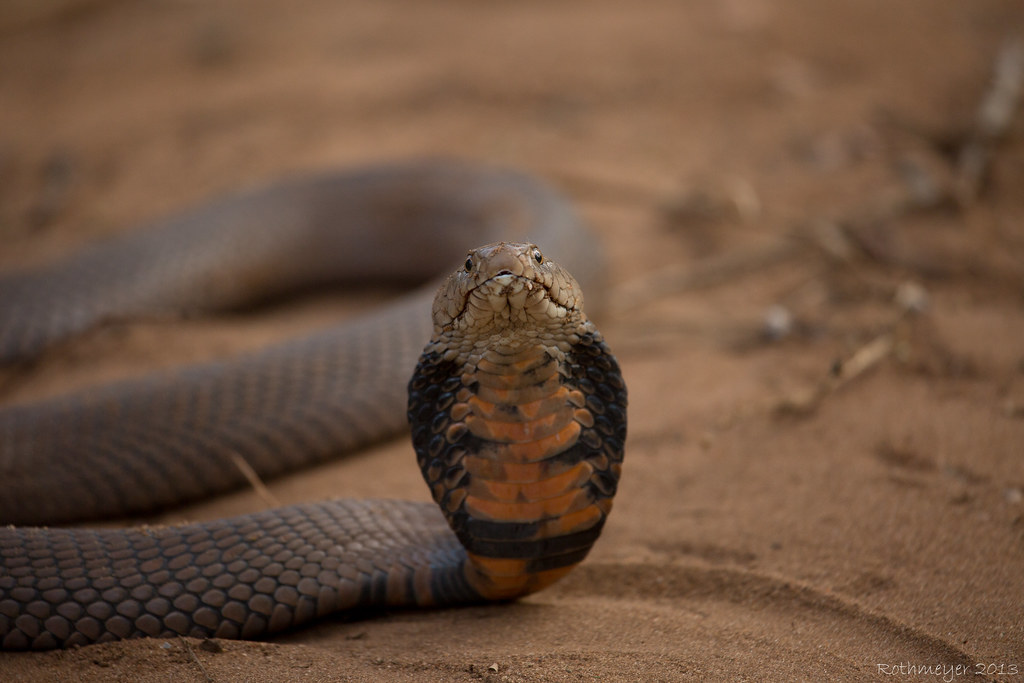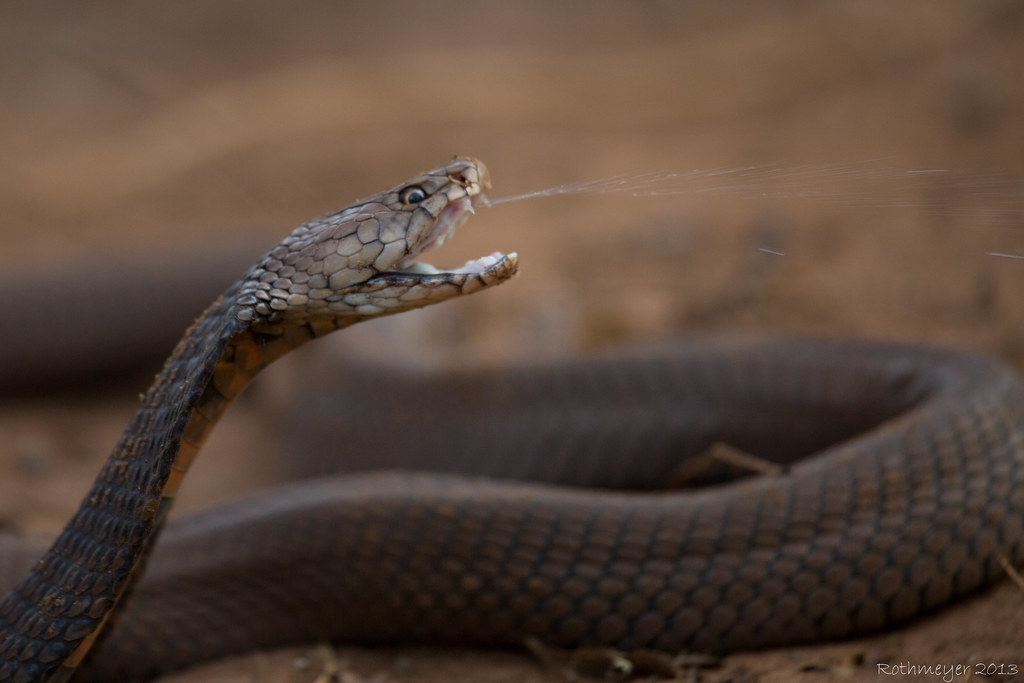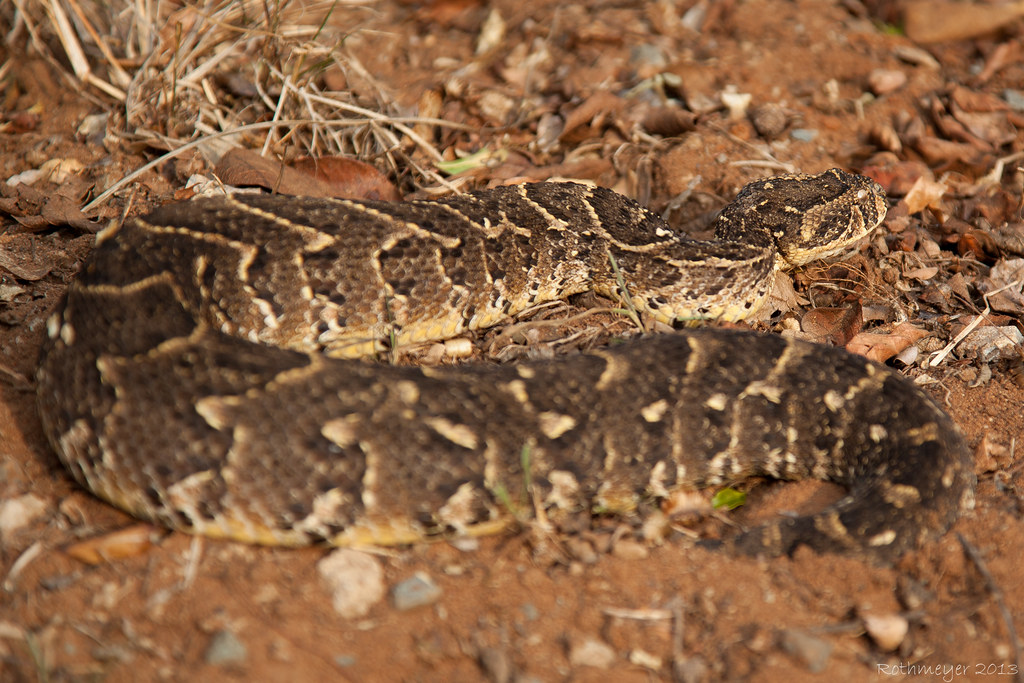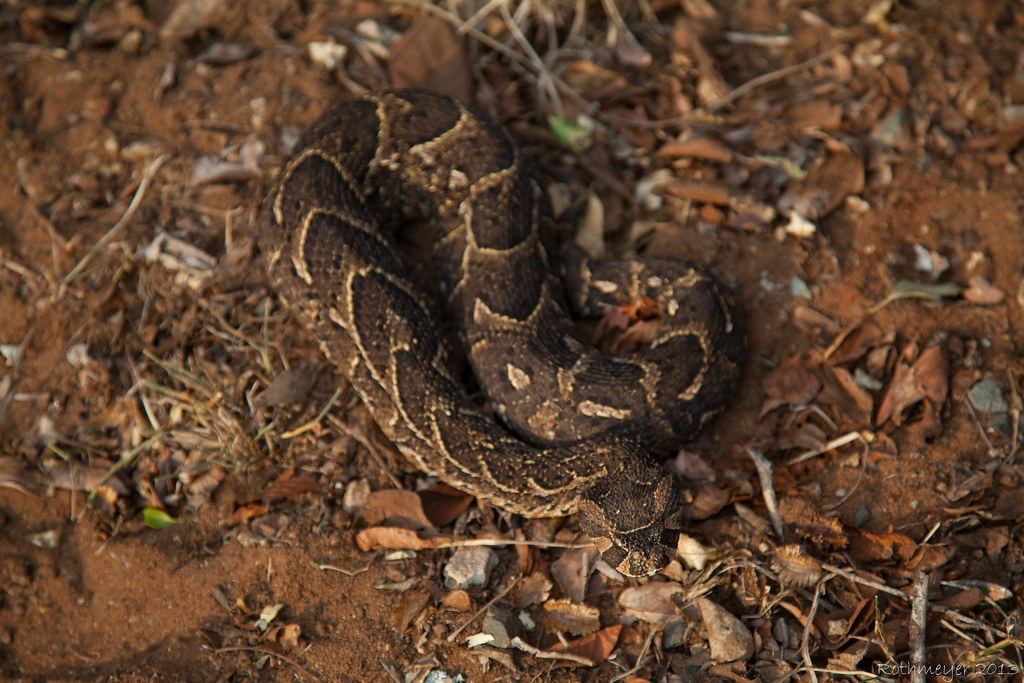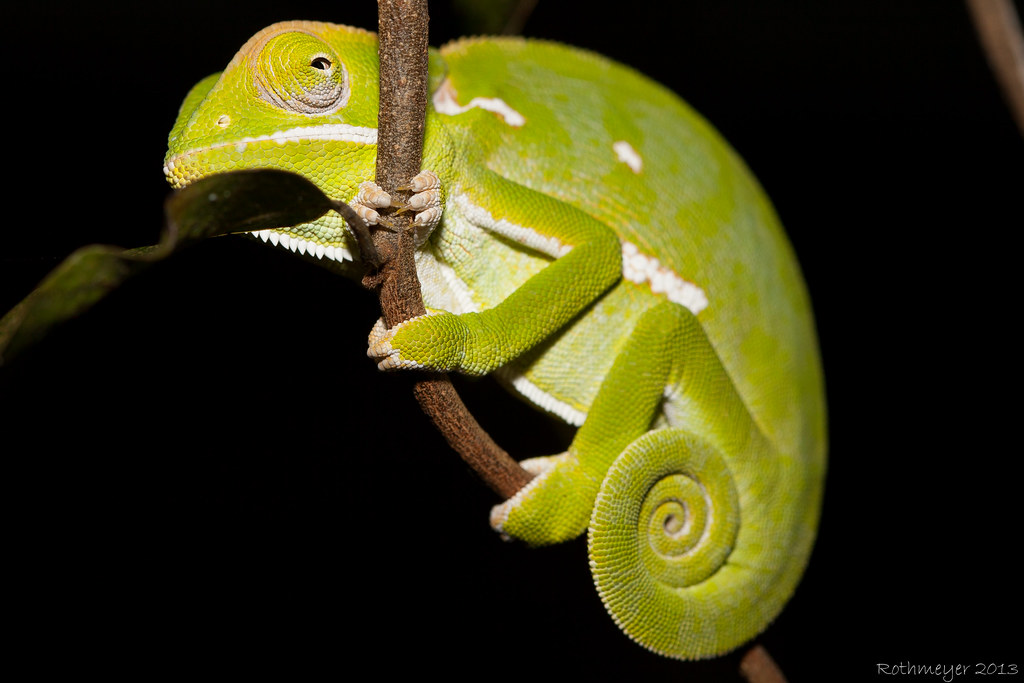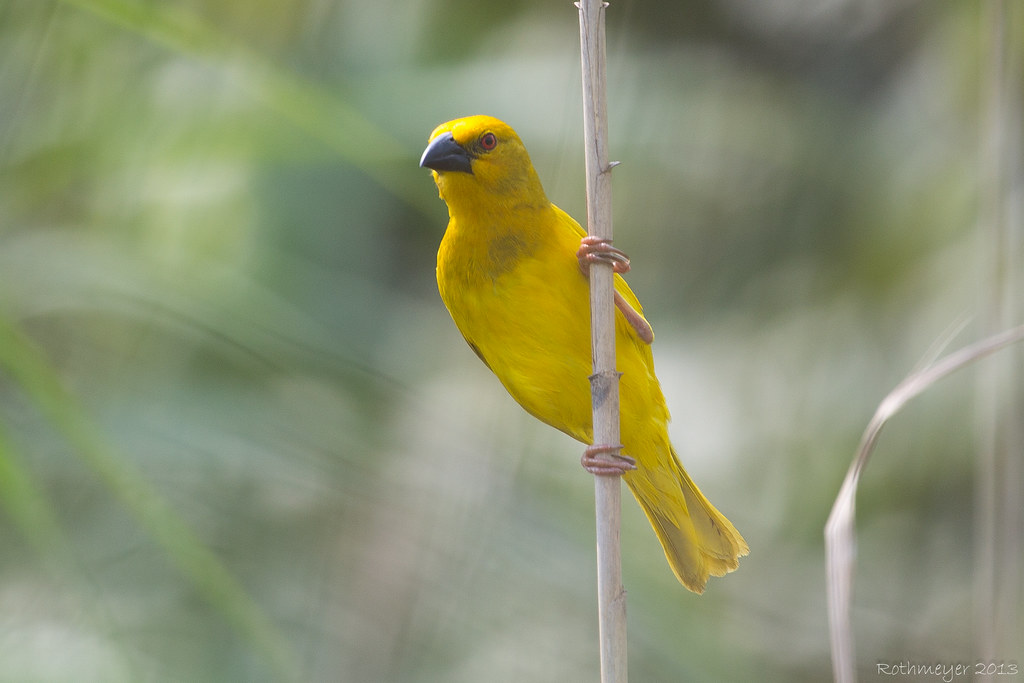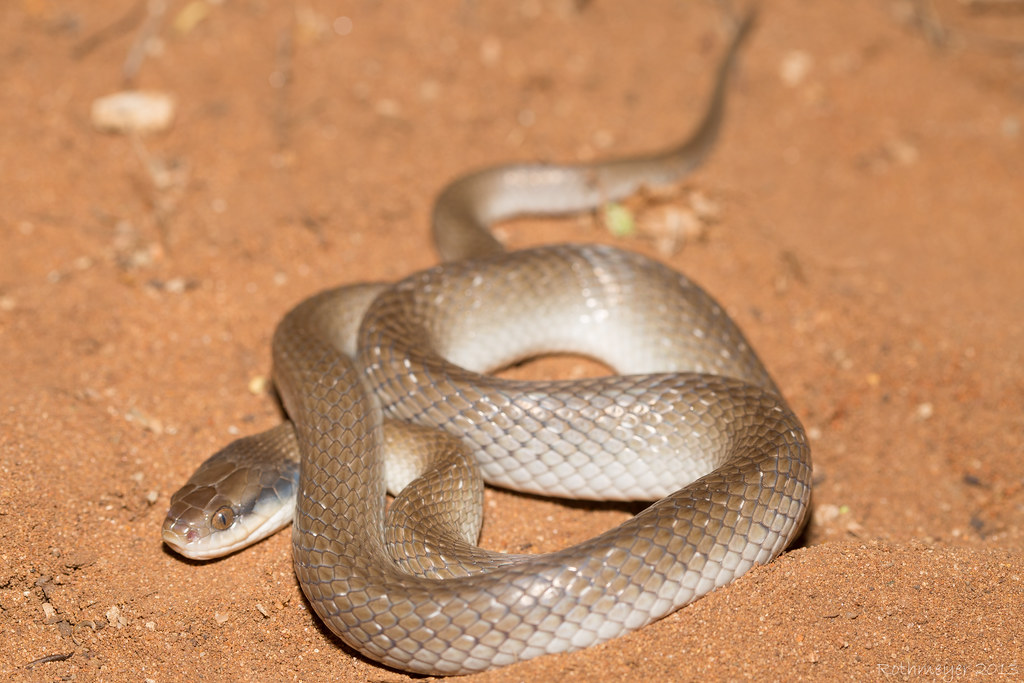So I really went to South Africa to photograph snakes. I was really hoping to find some of the abundant cobras and adders that inhabit that area. Luckily for me, the lodge I was staying at has an awesome owner and he also likes the scaly critters much like myself.
About 2 days before I arrived at his lodge, Anton (owner of Umkhumbi Lodge) held onto a few snakes for me just in case I didn’t find them in the wild while there. So while I much more prefer hiking and finding snakes on my own in the wild, this was our backup plan to shoot photos in case we didn’t see any on our own. As close to wild for these species as we would find unfortunately. But they didn’t dissappoint in their awesomeness.
First snake we shot photos of was this large Forest Cobra. These tend to be the most common snake found near the lodge. He tries not to advertise that too much as most people are pretty afraid of snakes, but I was HYPED! My buddy/tour guide Nick takes it out of the bin for us to photograph here…
Cobra style…just like everyone wants to see
Next up was a Mozambique Spitting Cobra. I’ve shot photos of all types of wild venomous snakes over the past 5+ years and these guys take the cake for being instantly pissed off. I was amazed at how quickly they just started spraying venom everywhere. I wore some goggles/glasses that were missing a lens so I could still look through my camera. Nick kept it busy so I could shoot…
Don’t get that stuff on you, especially if you have a small scrape. It’s basically the same thing as getting a small bite if you do. If it gets in your eyes, you’ve got some problems as well.
The only Puff Adders we found were DOR (dead on road) so I shot photos of a pair he had found on his dirt road leading up to the lodge the day before we got there. All these snakes were released just after we shot photos of them.
One of the techniques for finding snakes is to go out at night (preferably a warm night) and drive roads looking for them to be either crossing or using the road for warmth during thermoregulation. I was at the lodge for 3 nights so I had 3 chances of finding stuff. The first night proved to be rather cold and we didn’t find much in the way of reptiles. But…we did see this Bushbaby when its eyes gave it away from our car lights above the road.
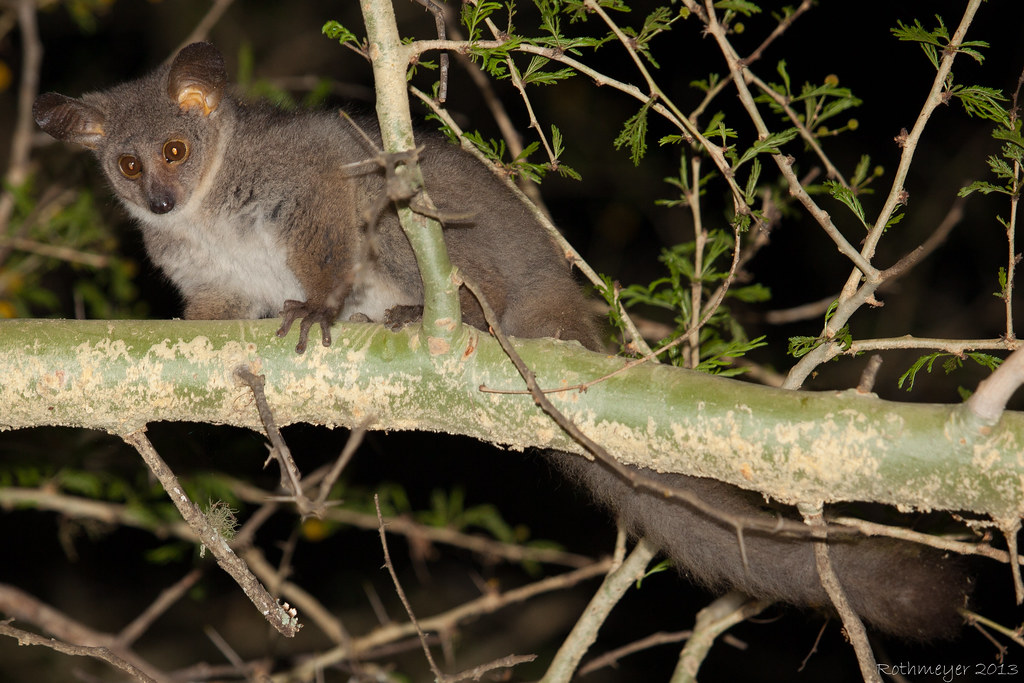
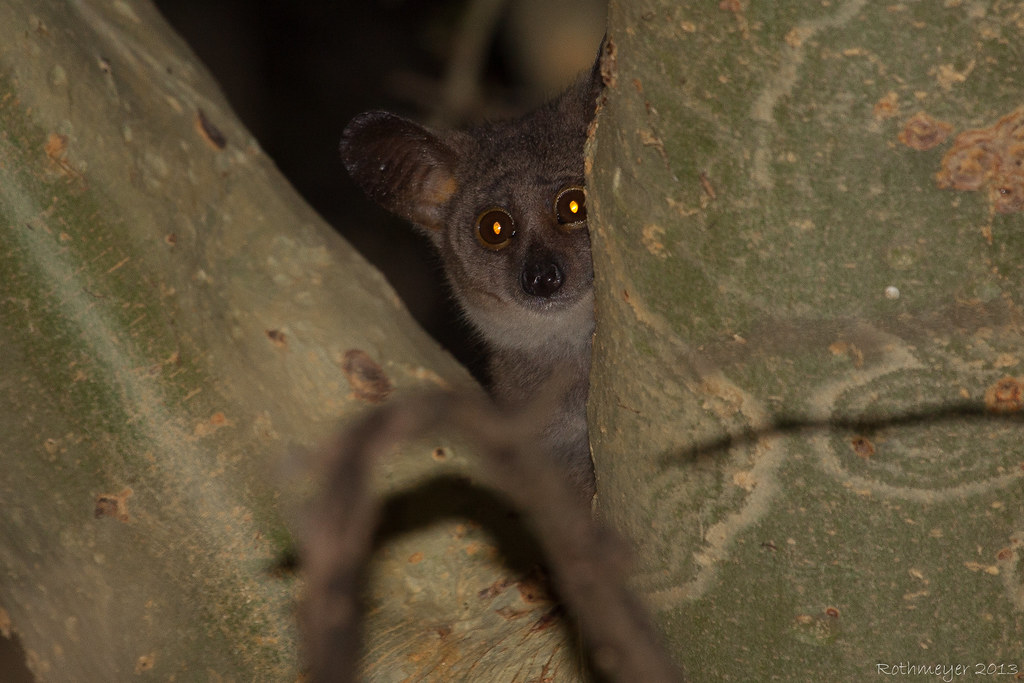
We also had a hippo run past our car while in the middle of nowhere. That was a sketchy experience considering it was larger than the car.
While back at the lodge, we found this resident Flap-necked Chameleon who lives in a tree outside the offices.
The following day we headed towards the coast to a bay/estuary called St. Lucia. There’s tons of cool stuff there so we planned on a boat ride through the estuary to see some wildlife first, then road cruise for snakes after around town.
The estuary is filled with all types of birds, hippos, and crocs, so there’s plenty to see.
This Nile Croc was chilling on the bank. Since this is an estuary and the water is brackish (salt/fresh mix), mammals don’t come down to drink. So the crocs here feed mainly on fish and birds, which doesn’t grow them as large as the giants they get further north of here in Kruger and other places in Africa. This old fellow was about 12 feet long or so. They’ve been known to get 20 feet though.
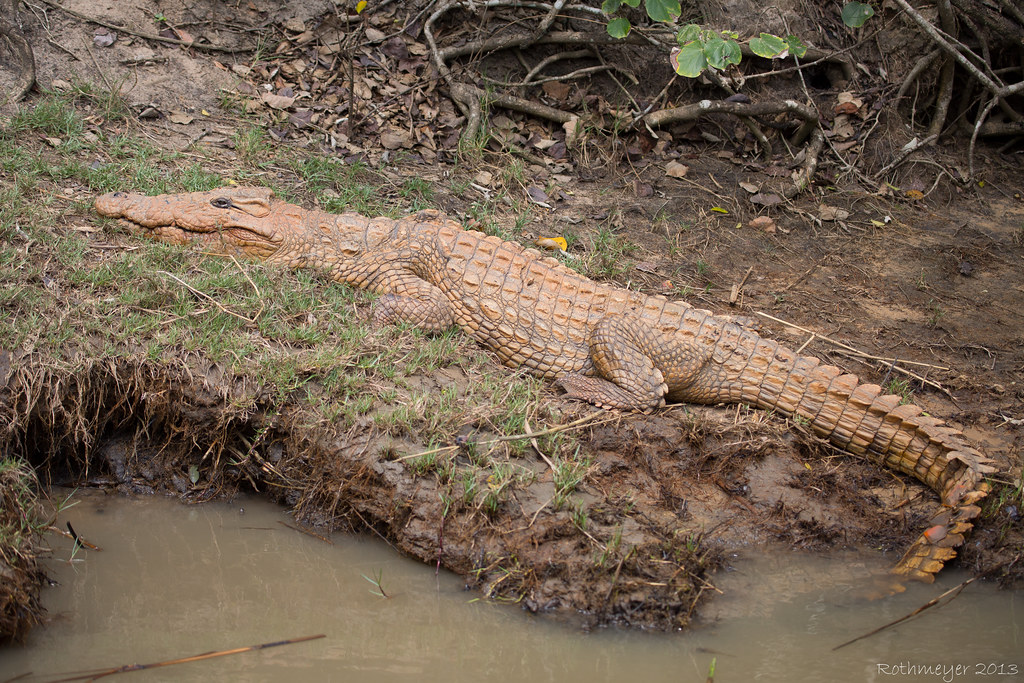
This particular one had some very old biological tags on it. These haven’t been used for 40+ years, so they estimate this croc at about 50 years old. These tags are brutal looking…
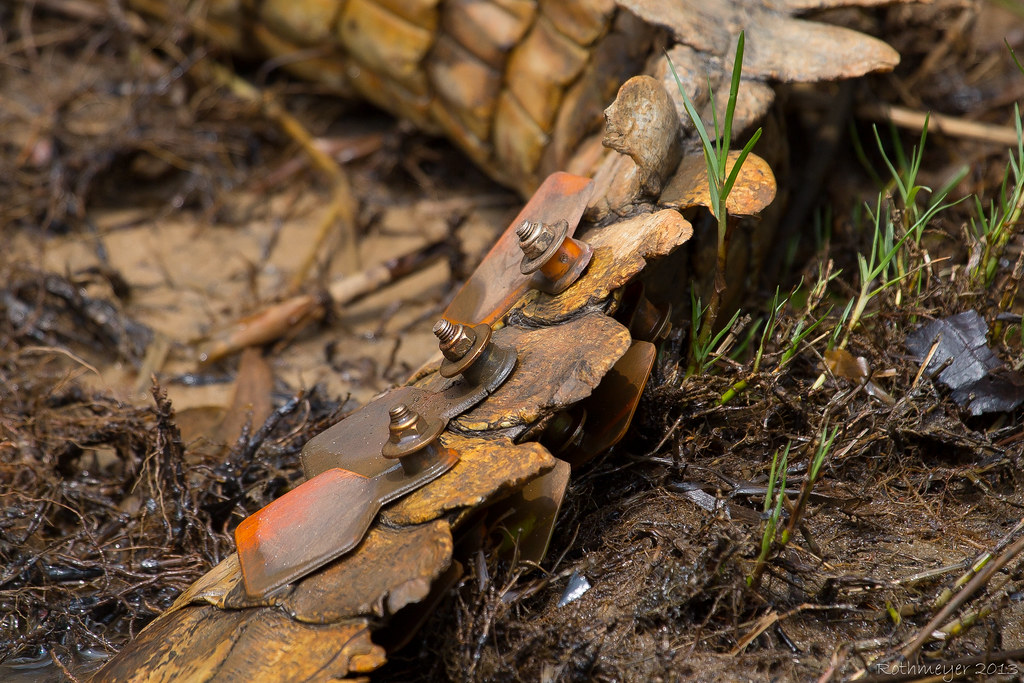
African Fish Eagle soaring overhead
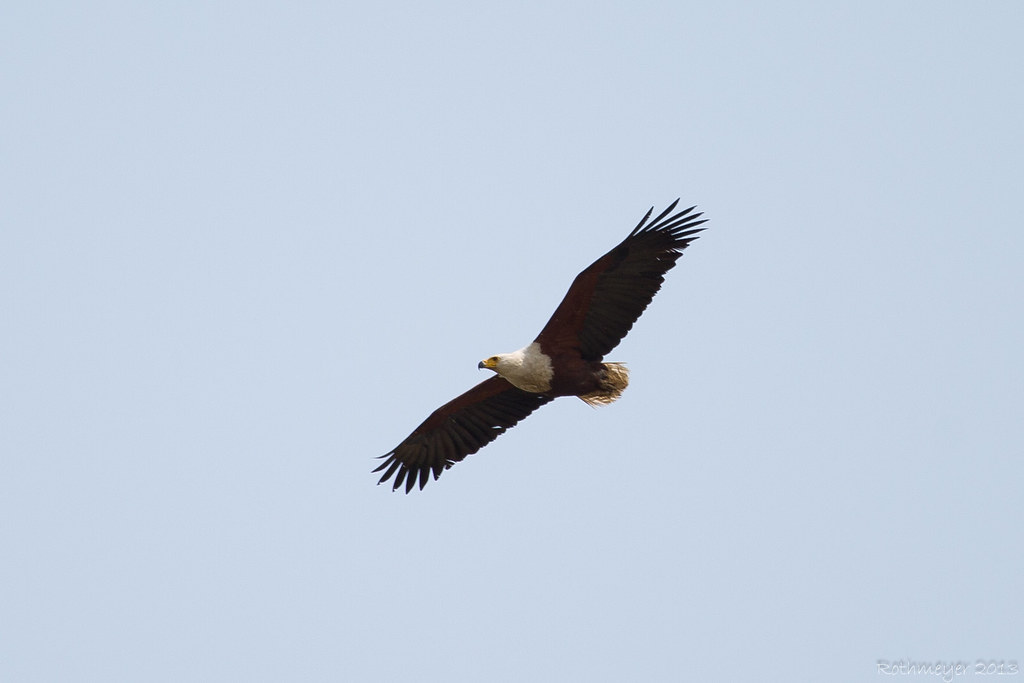
This is what a hippo crew looks like when you roll up on them. 1 dominant male per group and a bunch of females and juveniles.
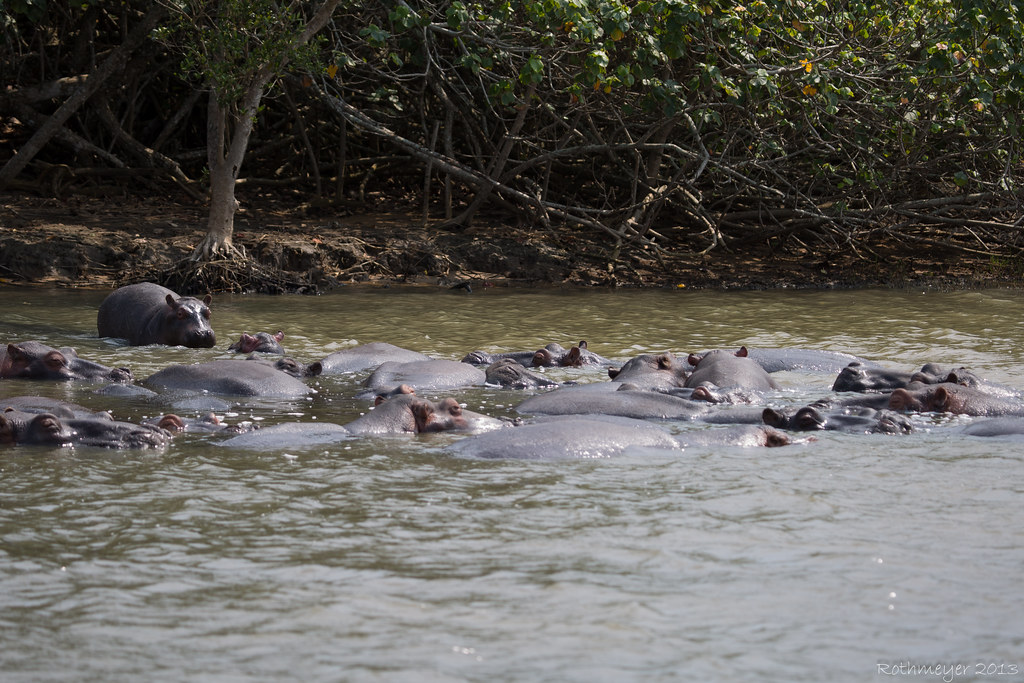
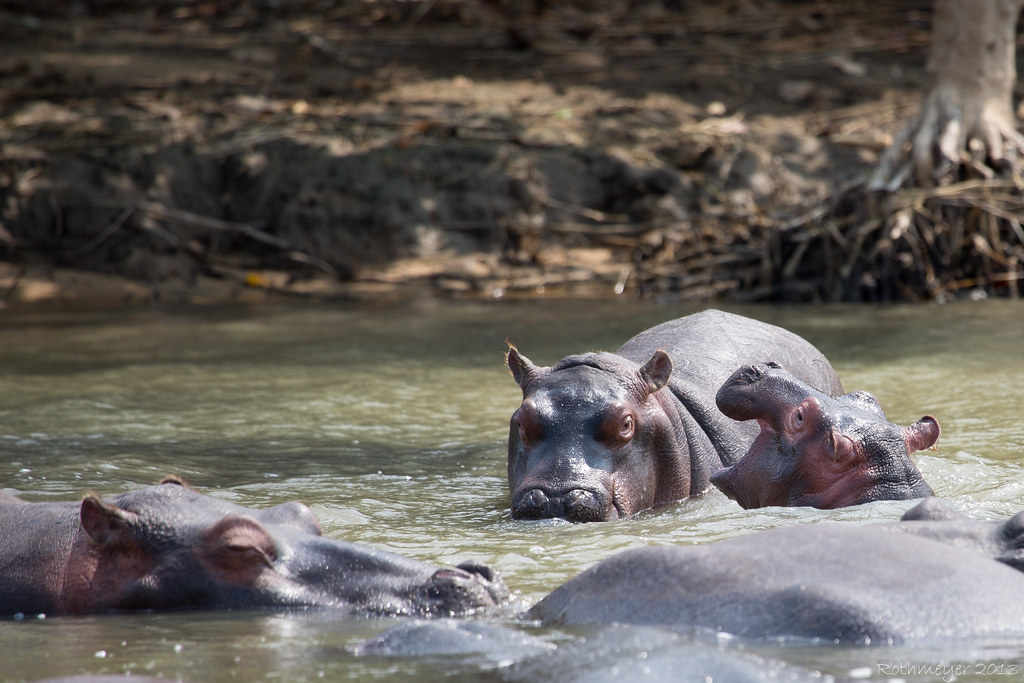
We decided to go hiking for a few hours before it got dark in hopes of finding an amazing snake that inhabits that area, the Gaboon Adder. This is the furthest south that snake exists, but we were unable to find one. We may have walked past 20 of them, but their camouflage is unmatched and they could hide right next to you without you knowing.
Nick pokes his head into what he hoped was a Rock Python den. I wasn’t going to risk it.
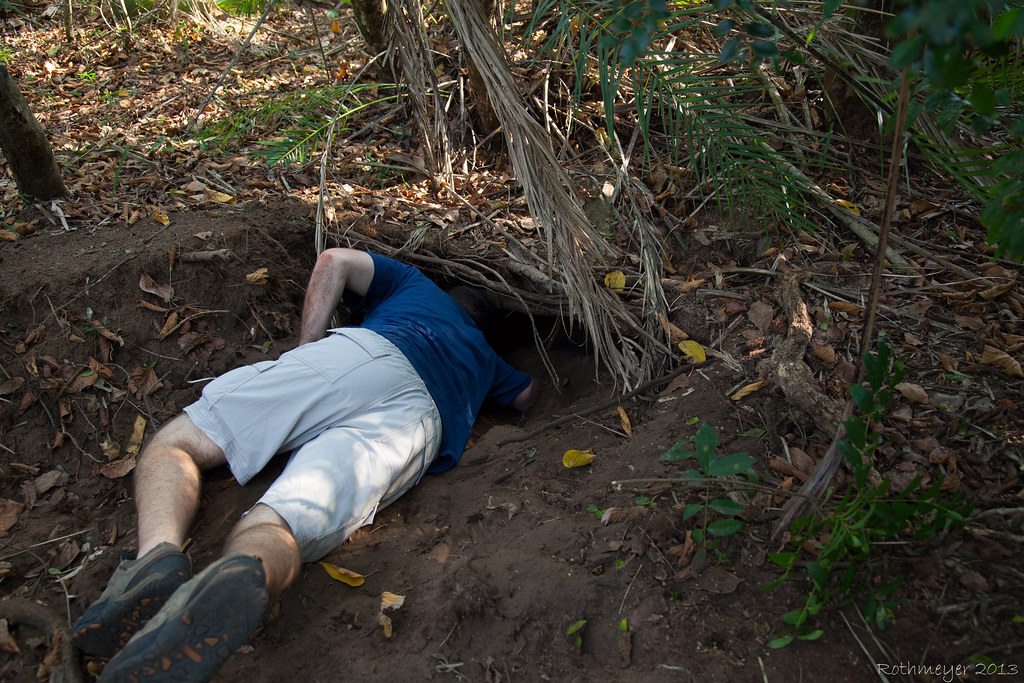
The landscape here was super lush. I had a standoff with this warthog
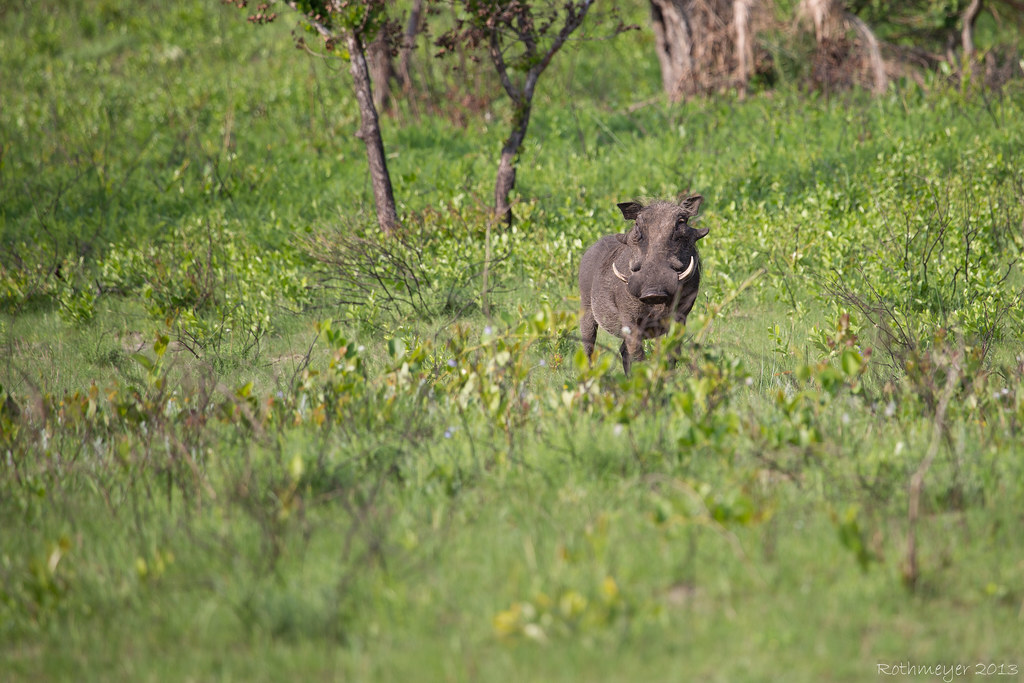
Zebra families enjoying themselves
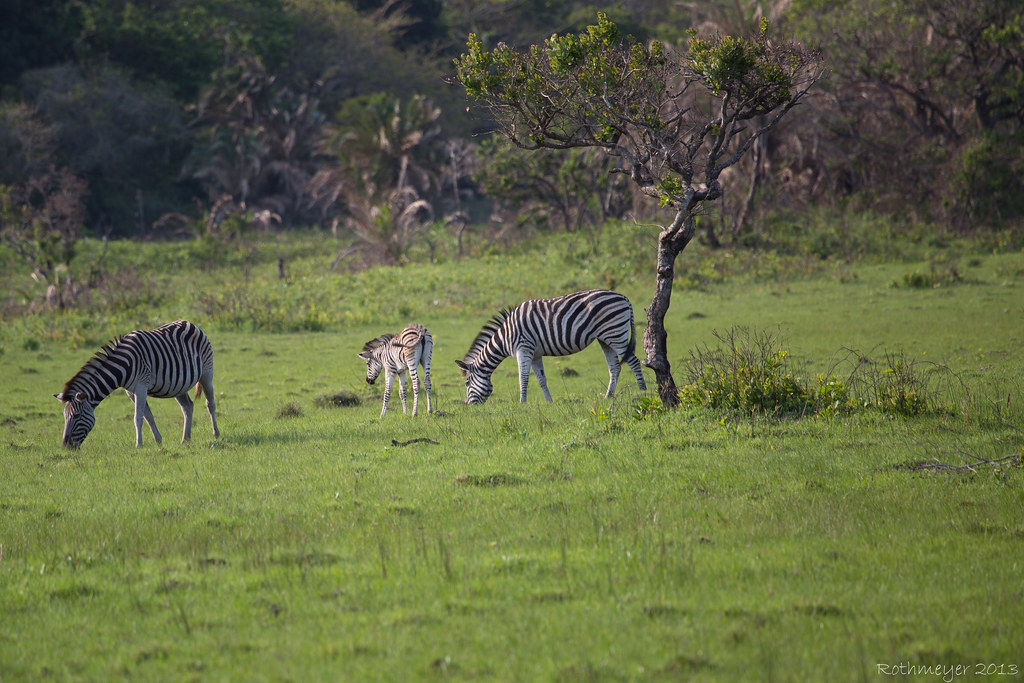
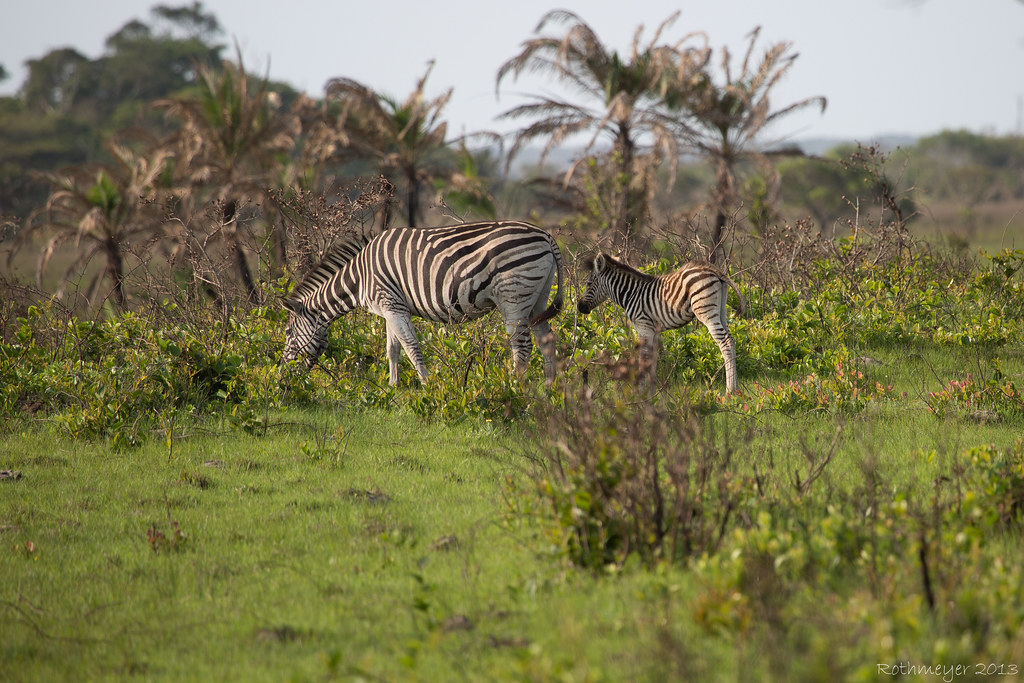
Near sundown, we went back to the estuary and walked the banks. People are very quick to walk right next to the shore to shoot photos of crocs and hippos. Maybe they don’t realize that hippos are some of the largest killers in Africa. I wasn’t taking any chances and stayed well back from the shore.
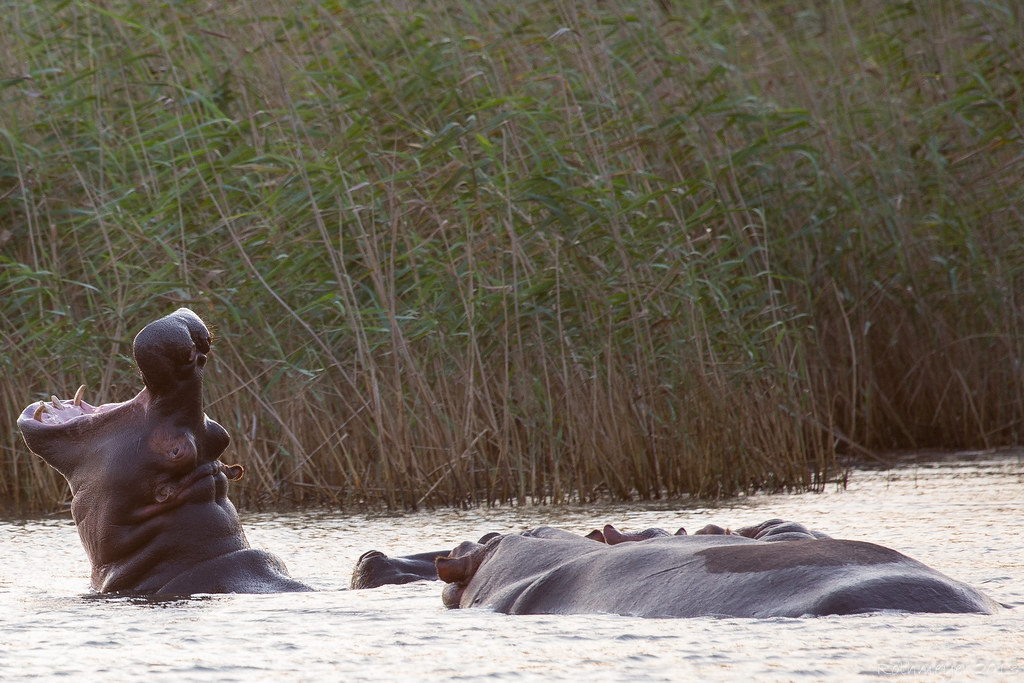
As night came we headed out on the roads in search of snakes. We came across a couple cool snakes that had just been hit by cars so I won’t show those here. But here’s a few we did find…
Rhombic Egg Eater- these are the guys that can fit an entire egg in their mouth, quite amazing looking if you’ve never seen it
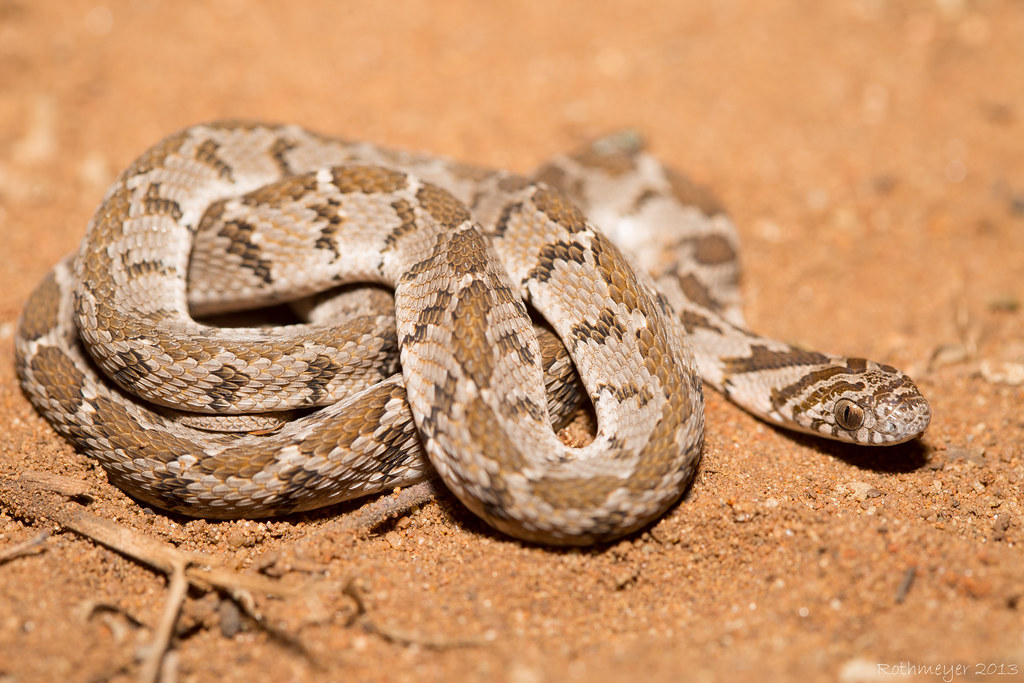
Dung Beetle I found on the path at the lodge

This moth was as big as my face
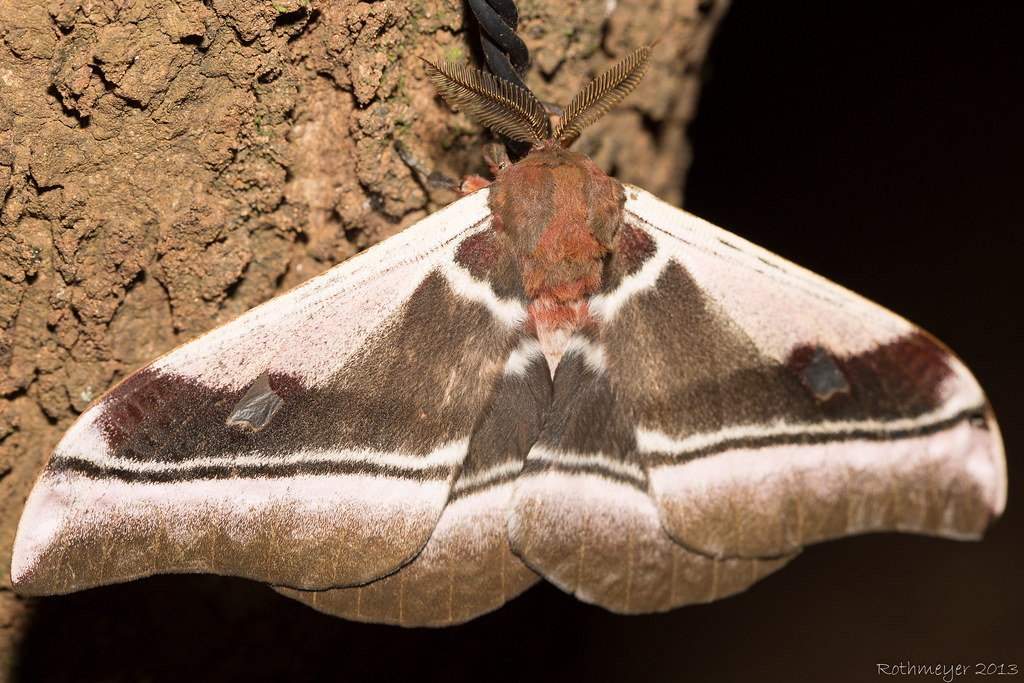
So we did find a few snakes on that 2nd night, but not as many as we would have liked. It cooled off quite a bit and we stopped finding things about 11 pm so we headed back to the lodge…





